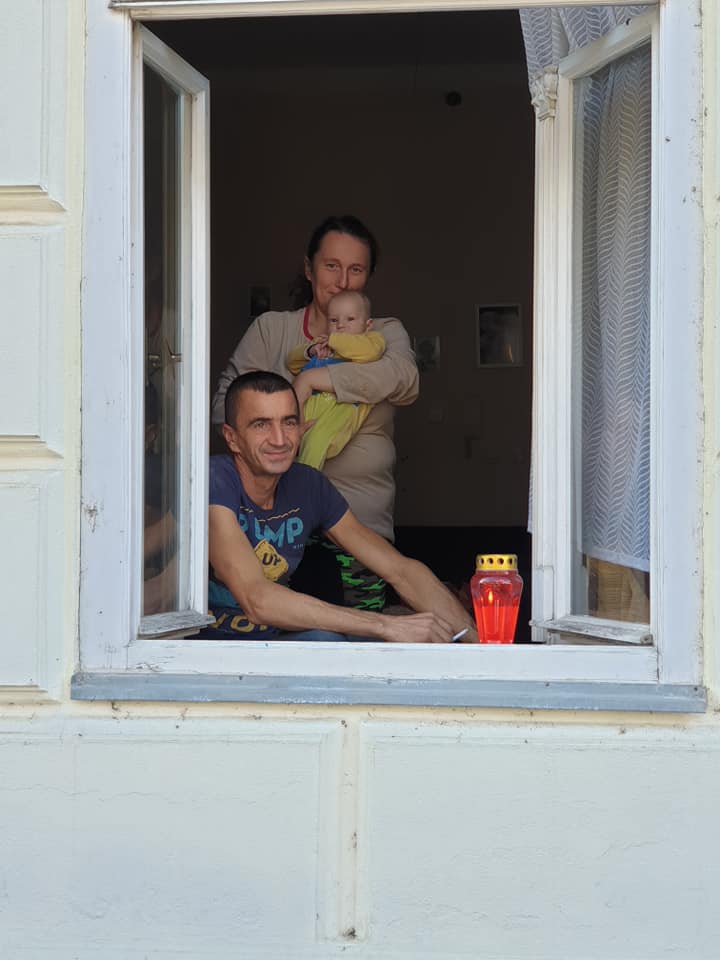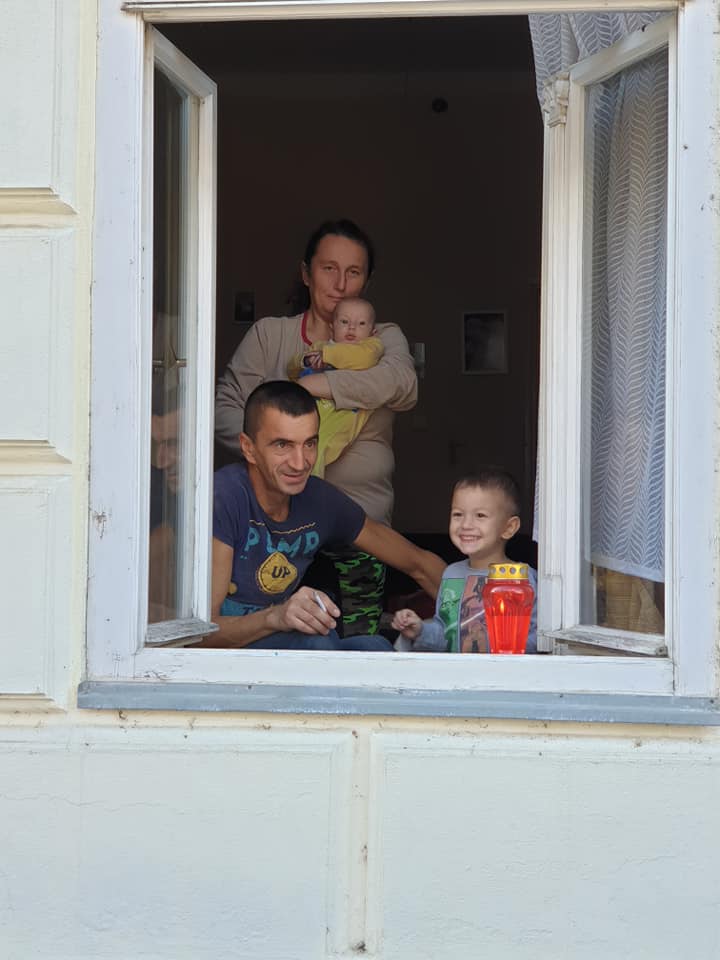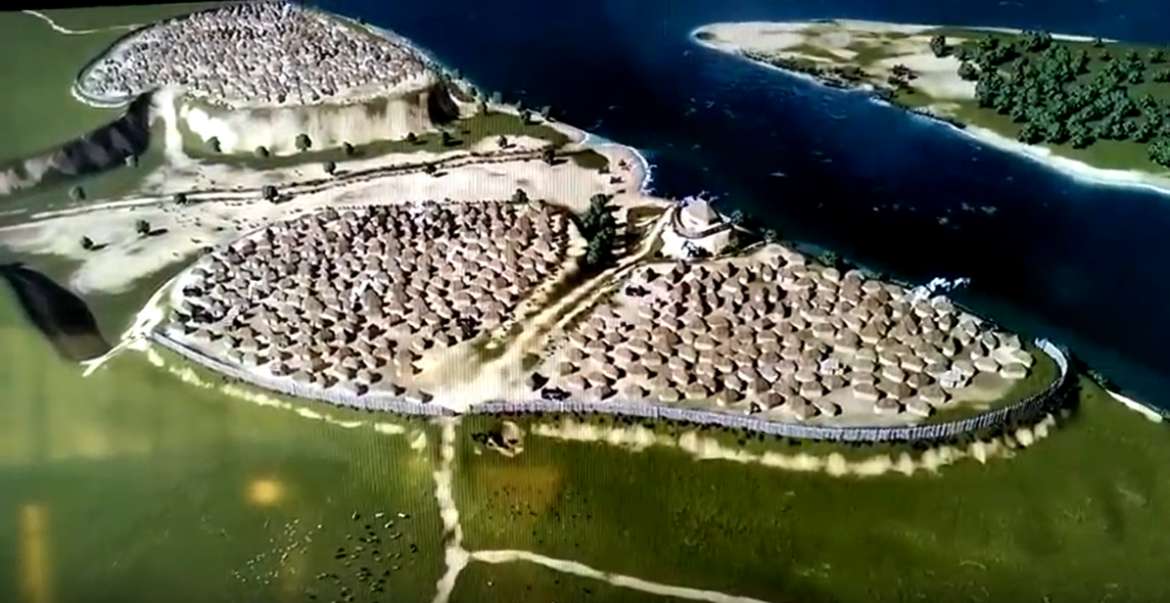November 27, 2019 - As the emotions of the Vukovar week remembering the sacrifices subside for another year, how to continue to honour those who died while assisting those who survived?
I don't think I will ever forget his face.

On a day of deep emotion and traumatic memories, one family watched the Vukovar Remembrance Parade pass their window, as tens of thousands took part in the parade from the hospital to the memorial cemetery. The father nodded his assent to requests for photographs.

And then he bounced into the room, a bundle of joy on this most solemn of days. Such youthful innocence. May the politicians not fail his generation.
But what can be done by the rest of us as well?
I have been thinking about Vukovar a lot over the last week, and especially about the face of that young boy. So many memories of my time in Rwanda came flooding back, of all the orphans wandering aimlessly around the country in shock.
I have never written about Vukovar before because it is one of the most sensitive of topics in the Croatian psyche, and I didn't know enough about it to write with authority. I decided to take part in the remembrance day parade this year, however, and to document it for, although 30,000 people a year go, there is very little information in English about it. You can read my impressions on this very emotional day here, as well as a truly fascinating barbecue that evening as all the foreign veterans gathered in an English pub in a field somewhere near Vinkovci.
The articles have been broadly well-received, and my inbox and the comments section flooded up with comments and messages of thanks. But there was one comment which struck me the most, from a returnee from Venezuela:
The year we moved to Croatia, we visited Vukovar 5 times. Every time somebody came to visit us, instead of going to the beach, we went to pay our respects to Vukovar. It's a big, open wound. So, so sad. Then and now...
A humble, concrete way to honour those who made the ultimate sacrifice as well as spending money to support the businesses of those who survived and are trying to rebuild their lives.
But the image of the boy would not leave me. And neither have thoughts of Vukovar, or reawakened thoughts of Rwanda.
I have spoken to lots of locals about Vukovar since my return from the parade. Now that I have written about it, I feel courageous enough to ask questions. The general consensus I am finding is that there is considerable anger at the way that the Vukovar memorial has been hijacked by politicians for their own purposes, and the people of Vukovar and their needs have largely been forgotten.
How many years would that innocent look of joy remain on the face of the boy?
Driving down to Trogir the other day, my mind wandered back to Vukovar. I tried to imagine being one of the fallen heroes looking down from Heaven at the November 18 parade 28 years after his death. He would have been proud. Some 30,000 people remembering his sacrifice, a city rebuilt in terms of infrastructure, Vukovar Streets all over the country lined with candelit red lanterns of memory. And all over something called Facebook, Croats posting statuses of Vukovar, Never Forget.
From his elevated position in Heaven, our hero could observe the Adriatic coast in July, a tourism country truly booming. The free and independent Croatia he fought and died for seemingly doing very well.
But then, what's this? Vukovar ten days later. The parade gone, the flags taken down, the people no longer there. A tale of emigration, lack of economic opportunity, a forgotten corner of Croatia, as far from those idyllic Adriatic beaches as one could imagine. And all those Facebook profile statuses also consigned to history to be replaced with something called selfies or pet photos.
And what was there for the boy in all this?
I started to think of my Facebook feed, all that gratitude, all those promises of never forgetting. And while it is great that people are not forgetting, there was nothing for the boy in all that, and the more I thought, the more it seemed that many of these status updates were mostly for the benefit of the poster - to bring them closer to their Croatian roots. For the boy there was nothing.
And I wondered what our fallen hero in heaven would have thought about that?
Or was there a way that people can honour the fallen but also contribute to Vukovar's rebirth in a way that has more of an impact than a Facebook status update?
There is. Something I call Vukovar Week, an idea born from the comment from the Venezuelan returnee above.
There are other ingredients in the Vukovar Week concept. Every child is required to visit Vukovar in 8th grade by law currently (I personally think this is too young). Croatia is introducing a Cro Card scheme (or already has). And the Chamber of Economy has run a campaign called Buy Croatian. Add to these ingredients the fact that most people outside Slavonia and the east have never visited, apart from that school trip, from the diaspora even less.
And yet it is a fascinating, really fascinating place, as I have been reporting in recent weeks. So why not introduce a concept of Vukovar week, a sacrifice (actually a perceived sacrifice, for the rewards will be numerous) the next time you go on holiday in Croatia, locals and diaspora Take a week and HeadOnEast instead. Pay your respects in Vukovar, but also meet the people there, eat their food, drink their coffee and wine, take tours of their countryside.
Vukovar is just a small part of Vukovar Week, however. and it gives visitors a chance to get to know much more about Croatia. I am constantly surprised that so little is known about what is east of Zagreb by locals living on the coast. Osijek, Vukovar and not much else.

I got SO many messages, for example, when I did the big piece on Vucedol - although people knew something of it, they had no idea it was this amazing. Vucedol is 4km from Vukovar.
A riverboat down the Danube from Vukovar to fabulous Ilok and those incredible wine cellars of Ilocki Podrumi, or north to historic Osijek, the nature park of Kopacki Rit, the wine roads of Baranja, the Lipizzaner horses and cathedral of Djakovo, the oldest continuously inhabited town in all Europe at Vinkocki, the imposing fortress of Slavonski Brad, Papuk nature park and the 800-year wine story from Kutjevo. Just some of the many things available from Vukovar Week. A concrete contribution to the economy of the east, but this is not charity, for what you get in return is worth much more. Here is what we managed to pack into a family weekend recently - incredible.
And, as I drove into Dalmatia and was approaching Trogir. I wondered how practical it could be to make this an official 'thing'. A range of itineraries, after each one of which, you would receive your Vukovar Week card, a card that would entitle you to some discounts on the coast.
And a card that one could post the following November 18 on the Facebook status to show that yes, one will never forget and one is proud and thankful, but also that one has done something concrete to ensure that the sacrifice was not in vain for the surviving families.
And maybe - just maybe - that smile of the boy might stay a little longer. And who knows, one day, that smile might belong to a business owner in Vukovar, who was not forced to emigrate.


